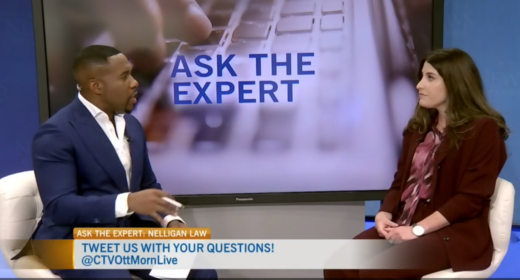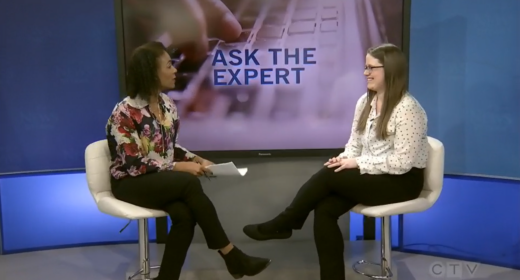This article originally appeared in the January/February 2018 edition of Fifty-Five Plus Magazine.
Nelligan O’Brien Payne gratefully acknowledges the contribution of Rachelle Bastarache, Student-at-Law, in writing this blog post.
Your children are now adults, but fight like they’re still teenagers. Although you have a good relationship with your children, they cannot be in the same room together. Are you worried that if you name one of your children as your power of attorney for personal care, they might try to restrict your other children from your life? Is there a way to ensure that won’t happen?
Issues of access are beginning to arise more frequently in Power of Attorney situations. As dementia and other diseases of the mind become more frequent, slight changes to a routine can upset an incapable person, giving rise to a range of issues, including denying access to relatives, or restricting access to an incapable person’s movements on a secure floor of a nursing home. When planning your estate, these are among the many things you need to consider.
A power of attorney document is fairly simple to create on your own. There are no legislative stipulations on how one must be drafted, and they are quite straightforward to execute. The problem lies not in the creation of the Power of Attorney, but rather the lack of understanding about what rights you may be signing away with a power of attorney and how to avoid putting yourself in a precarious situation. Often, the problems arise when an attorney is named based more on family dynamics, rather than based on the criteria of who would best fulfill the duties of a power of attorney. Although it is not mandatory to receive independent legal advice to execute a POA, a trusted lawyer can help walk you through issues that can arise and help you address them in advance to ensure your wishes will be followed.
I’m still in good health, why should I bother detailing a POA?
As a lawyer, I am clearly biased that having these affairs in order well ahead of time is the best way to ensure that your wishes are protected. But the reality is, mental incapacity can happen at any time, and the spectrum of incapacity varies widely. Take dementia, for example. According to the latest statistics on the Alzheimer’s Society of Canada website, about 25,000 new cases of dementia are diagnosed each year. As of 2016, an estimated 564,000 Canadians live with dementia, which is expected to more than double over the next 15 years. Mental incapacity comes in many shapes and sizes, and you do not know when it might happen to you. It’s best to understand the implications ahead of time so you can understand what sort of control you are giving the person you are naming as your attorney for personal care. That way, you can ensure their actions align with your wishes.
An attorney for personal care can make substitute decisions for you in six different areas: your health care, nutrition, shelter, clothing, hygiene and safety. This is a large scope, and gives the attorney a lot of power. This power stems from a piece of legislation called the Substitute Decisions Act. The act is written with lawyers in mind, resulting in a lot of “legalese” writing that makes it difficult to decipher what responsibilities an attorney has. This leads to lots of problems, where an attorney thinks they are acting in good faith, only to later find themselves taken to court by another family member for overstepping their boundaries.
What control does an attorney under a Power of Attorney for Personal Care have over other family members in making decisions about my care?
To give an example of the issues that can arise when a power of attorney is signed, I’ll refer back to the example I opened with. When siblings or other individuals have longstanding feuds, it is sometimes difficult for both parties to act solely in the best interests of the incapacitated individual. People often choose their attorney based on convenience, rather than assessing the options available to them or the various dynamics at play. Moreover, the less amount of detail you have in your power of attorney document, the greater power you give to the individual you name as your attorney, often to your detriment. The question then becomes: “What are the rights of the parties involved in a situation where a power of attorney for personal care is in effect?”
The lawyerly answer is, of course, “it depends”. The POA does not have a unilateral right to restrict access to the incapacitated individual. In fact, in the Substitute Decisions Act, the attorney has an obligation to foster relationships that existed prior to the incapacity. The legislation also mandates that an attorney consult with concerned family members about the decisions they are making for the incapacitated individual’s personal care. What this means is that even if your attorney is not on speaking terms with other family members, they still have a duty to inform them of the choices they are making in respect to your care. This helps to bring accountability into the system.
The caveat to the consultations mentioned above is that they are limited to supportive family and friends who are in regular contact with the incapable person. The definition of “supportive” is also open to interpretation, usually by your attorney. This means, for example, that if you have not been on speaking terms with one of your children before you become incapacitated, there is no duty for the attorney to consult or inform them about your care or facilitate a relationship between you and that relative. This is more frequent in cases where family relationships are in disaccord. Even where there was regular contact prior to incapacity, there have been situations where the attorney will use their power to restrict access by citing harm to the mental wellbeing of the incapable person as an excuse. Unless your power of attorney document outlines that the attorney is prohibited from limiting access to certain individuals, it is at their discretion. This can result in costly legal battles and a worsening of family tensions. If you are concerned that this may happen and it is not what you desire, it is best to create a power of attorney document that clearly outlines your wishes.
What about issues of access that arise by placing a resident in a secured unit?
Access can also be broadly defined to encompass access by you to the outside world. With dementia and other diseases of the mind, often the individual can be a risk to themselves. Although we like to view advancing age with rose-colored glasses, the reality is, when your mind is turning on you, a simple walk around the block can turn into a 4-hour search party because you cannot find your way home. The question then becomes, should an attorney be able to restrict access to your movements or make decisions about placing you in a secured unit?
Over the past couple of years, there have been complaints that tenants in retirement homes have been placed in secure units without their consent. At times, consent is obtained from their attorney for personal care. However, a substitute decision-maker does not have the authority to consent to on-going detention unless you have included a “Ulysses clause” in your power of attorney for personal care. A Ulysses Clause binds the grantor of the power of attorney into the future to ensure that the grantor cannot refuse specific measures, like detention in a secure unit, at a later date.
Unless you specifically dictate what your long-term care wishes are, you may find yourself in a secure unit without any ability to express a contrary view.
The majority of issues outside of fraud that arise from improper use of a POA generally stem from a lack of knowledge about what the duties and limits of an attorney are under a power of attorney. Being named as a power of attorney is a big responsibility, and people are largely unprepared for what they might face. Situations where a POA may have to work together with their siblings who they do not get along with, or where they have a new-found power over your life, are very real issues that people should address before anything happens.
If you would like to appoint a POA or receive more information about issues of access contact our Wills and Estates Practice Group.



